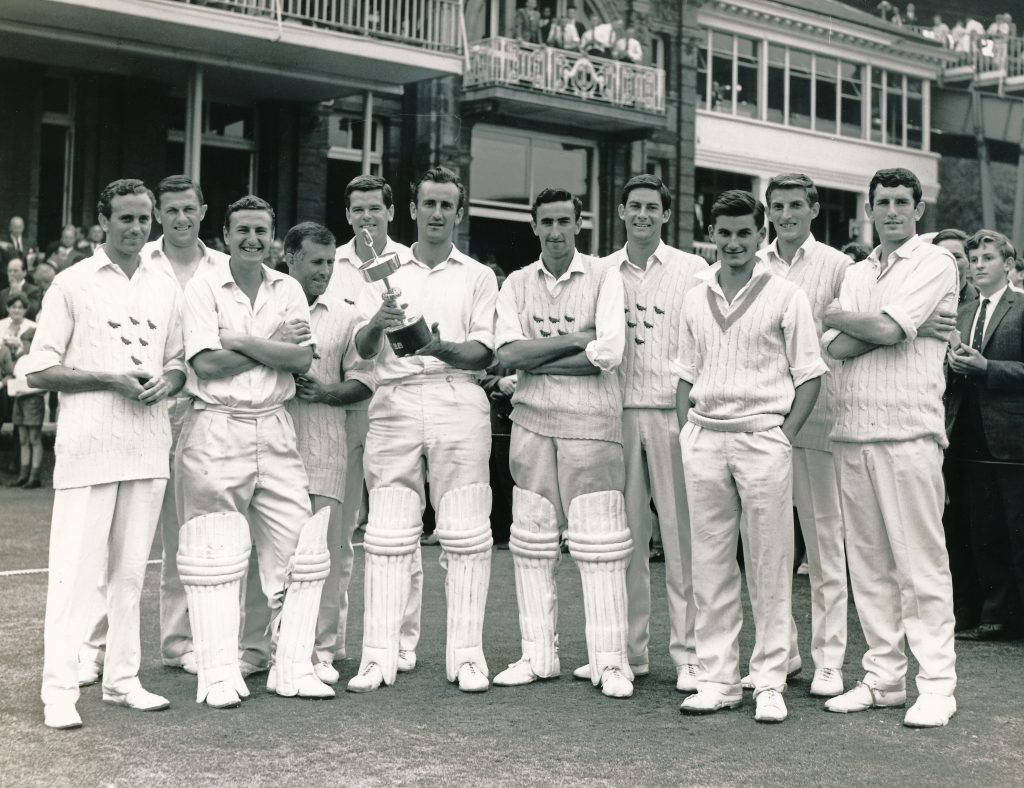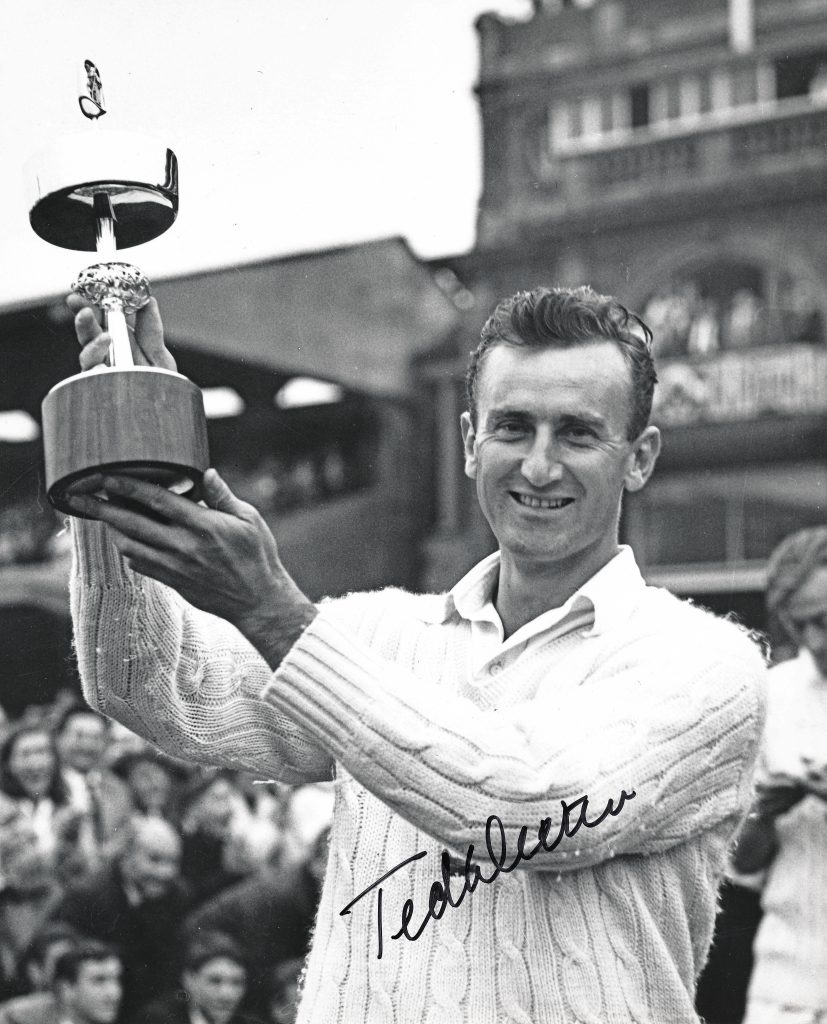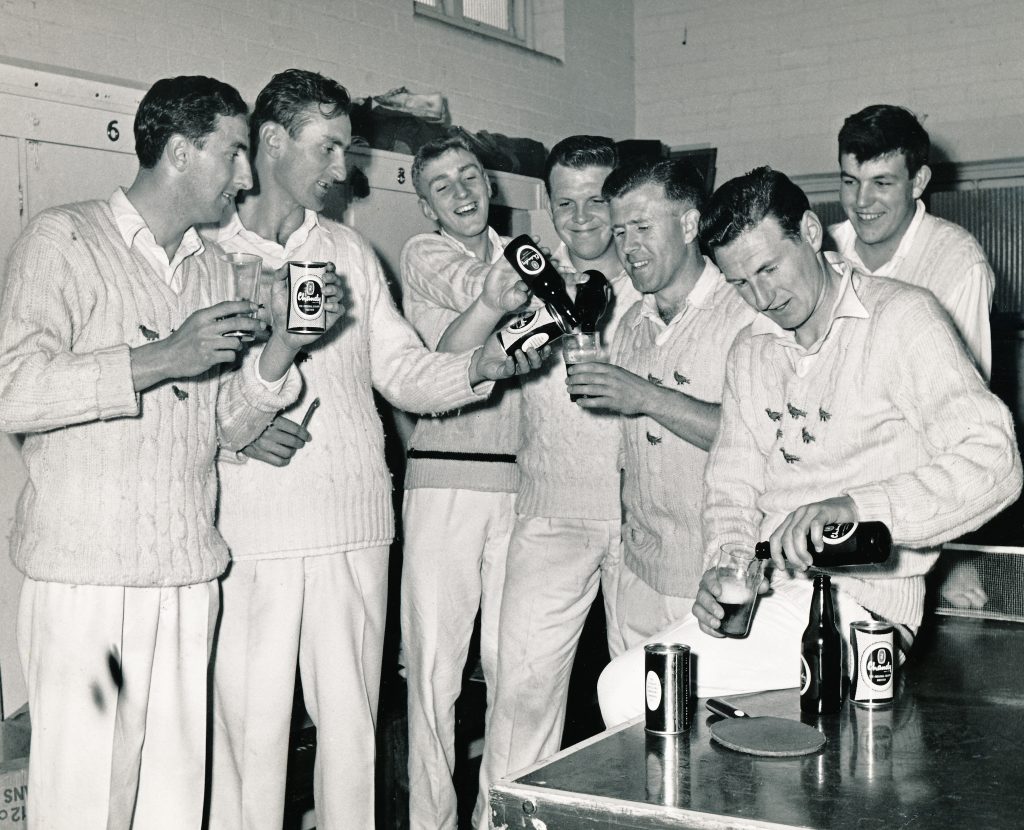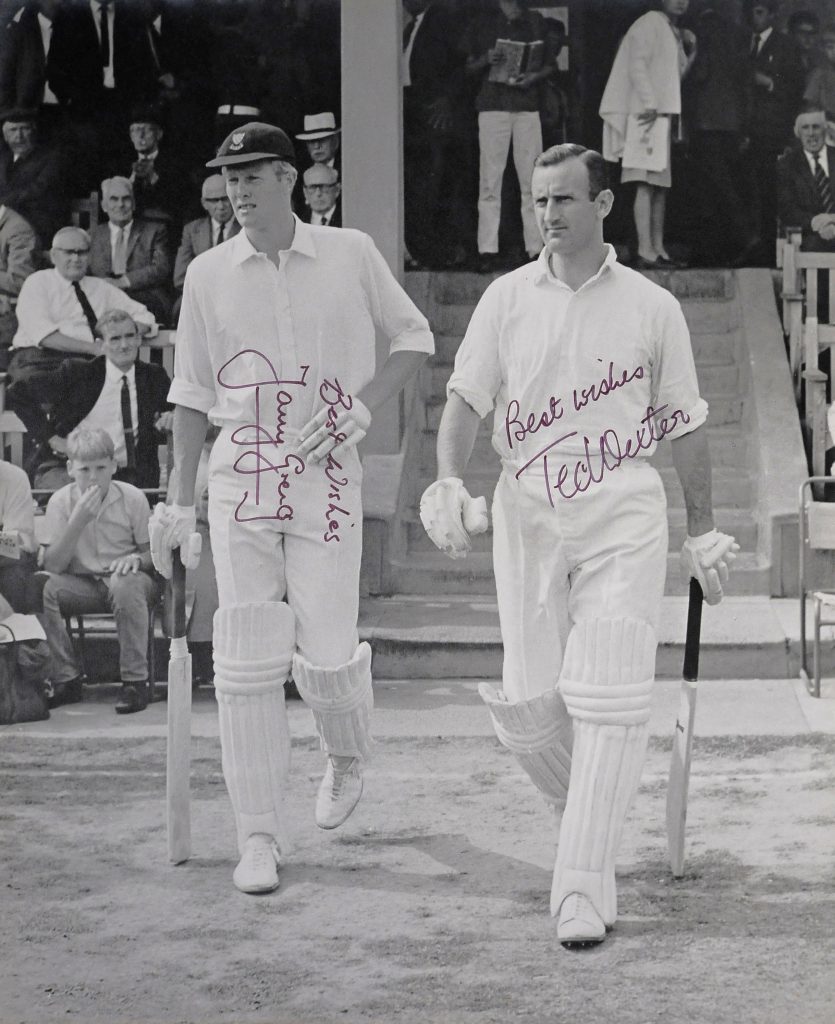A cricket thinker
Ted Dexter was one of the most exciting cricketers who emerged in the Post War period. Like Ranji before him, the prospect of Dexter attacking fast bowling, and driving and cutting them with fierce strokes was enough to put thousands on any gate. He was a cricket thinker who helped to revolutionise the way the game was played and in so doing led Sussex to their first ever trophies in 1963 and 1964. His aristocratic air and seemingly arrogant attitude earned him the title of ‘Lord Ted’ or ‘Lord Edward’. As a player he thrived when playing on the big stage, especially when pitted against Australia and the fast bowlers of the West Indies.


Malaya and Cambridge
Dexter was born in Milan on 15 May 1935 and first demonstrated a flair for games at his prep school, Norfolk House in Beaconsfield. From there he went to Radley where he played in the first XI for four years from 1950-1953, initially as a wicket-keeper, and averaging more than 80 with the bat most years. Leaving Radley, he did his National Service in Malaya during the Emergency as a second lieutenant in the 11th Hussars. He then entered Jesus College, Cambridge where he played not just cricket but golf and rugby, gaining a Full Blue in cricket in each of his three seasons and scoring over 1,000 runs in two of them. He captained the side in 1958. He first came to national prominence in 1957 as a bowler for the Gentlemen getting 5/8 and 3/47 and he joined Sussex soon after, topping their bowling averages with 7 wickets for 118 runs in 56 overs. He played though only three innings for Sussex with his top score being 63. The following year, 1958, Dexter played six innings for Sussex during the long vacation and averaged 18.5 although in all matches he scored 1,565 runs. Dexter was picked for England against New Zealand and in his first Test scored 52 which gave a hint of the promise that was to come.
A great counter-attacking batsman
EWSwanton thought that Dexter should have been picked for the MCC tour of Australia that winter but in the event he was to go when injuries required replacements be flown out: in Dexter’s case from Milan. He did well in the warm-up games but failed in the Tests but redeemed himself with his maiden century of 141 against New Zealand.
1959 was Dexter’s first full season of county cricket for Sussex although he had an indifferent summer against India. He was selected for the side to tour West Indies in the winter of 1959-60 and really established his reputation as a fierce counter attacking player of fast bowling. He hit 136* in the first Test against Hall and Watson, and 110 in the fourth Test topping the England averages. Dexter was made captain of Sussex for the 1960 season, the first of six summers as captain. He had a quiet summer Test series against South Africa but in the 1961 Ashes series, Dexter had a score of 180 in the first Test to save England from defeat although Australia went on to retain the Ashes. In the fourth Test Dexter scored a brilliant innings of 76 in 84 minutes to put England in a winning position but a remarkable collapse saw England lose by 54 runs.
Dexter was chosen to lead a weakened side that played eight Tests on the Indian sub-continent over the following winter, winning against Pakistan but losing against India. Dexter scored his highest Test score of 205 at Karachi. With Peter May retiring in 1962 the selectors had to choose another captain. It seemed to be between Dexter and Cowdrey, but when Cowdrey withdrew from the Gentlemen v Players match with kidney stones, another candidate emerged in Dexter’s colleague from Sussex, the Rev David Sheppard. Dexter was eventually chosen as captain for the remainder of the summer and for the winter tour to Australia.
In Australia Dexter scored a then record of 481 runs for an England captain in Auistralia, and was a huge draw for the Australian public. His attacking play with scores of 70, 99, 93 and 52 gave England a 1-0 lead going into the third Test but Dexter’s decision to play Trueman instead of a second spinner proved crucial in England’s defeat.
The summer of 1963 was an exciting one both for England and for Sussex. In the series against West Indies Dexter took on Hall and Griffith to hit 70 off 75 balls in the second Test before two good spells of bowling (4/38 and 1/7) by Dexter saw England win the third Test only to lose the last two matches.

Heavy criticism
In 1964 Dexter was heavily criticised for a decision which lost the series, that of removing the off-spinner Fred Titmus after he had taken three Australian wickets to reduce Australia to 178/7. Instead of continuing with Titmus, he gave the new ball to Fred Trueman who attempted to bounce out the remaining Australian batsmen. Instead Peter Burge hooked and pulled his way to 160 which led to an Australian victory.
That summer saw Dexter lead Sussex to their second successive One-Day Gillette Cup victory following the win in 1963. It was in the one day format that Dexter had the greatest impact with Sussex although the club twice reached fourth place in the Championship under his leadership. In the three day game Dexter was sometimes accused of over-theorising, but in the one-day game his leadership was exceptional. He understood before anyone else that 60 overs was long enough for teams to build innings and that there was no need to hit out too early. He also realised that setting defensive fields could set opposing teams a challenge. His own style of batting was also ideal for the one-day game. He was a genuine all-rounder who was often brought on to break up partnerships. In 1962 he took an invaluable 60 Championship wickets with his seemingly innocuous medium pace.
The 1964 Election
Following the 1964 Gillette Cup success Dexter tried his luck at politics by standing against James Callaghan in Cardiff in the 1964 General Election. Failure led to his being called up for the South African tour but an accident in the summer of 1965 in which he broke his leg saw his effective retirement from both Test cricket and Championship cricket although he continued to play for the International Cavaliers.
Retirement
He made a brief comeback in 1968, making 203 in his comeback game against Kent which was enough for him to be selected for the last two matches in the Ashes series, but he failed to make any significant score. Dexter came back in 1971 and 1972 to play a few Sunday League games but he had already begun to concentrate on other interests. He became a broadcaster and writer as well as founding a PR company, and went on to be chair of England’s selectors between 1989 and 1993. He was appointed CBE in the New Year’s Honours List of 2001.
As well as being a brilliant cricketer, Dexter was a very good golfer and might well have been a professional had cricket not intervened. He flew in his own private aircraft, once to Australia where he was working as a journalist covering a Test series. Following his CBE Dexter became President of MCC in 2001/2.
Sussex Record 1957-1968
Matches: 137
Batting: I:238, NO:22, Runs: 8827, HS: 203, Ave: 40.86
Bowling: W: 218, Runs: 5699, Ave: 26.14, BB: 7/24
